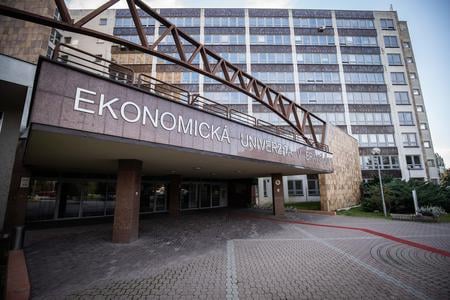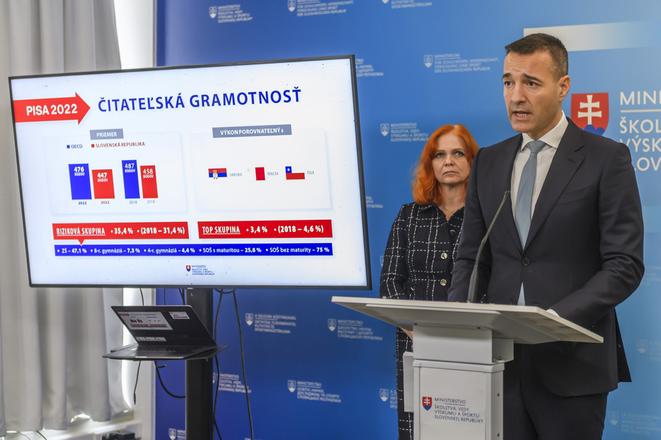Active involvement in debate forums and social media, the demonstration of assertive communication and learning to recognise manipulative practices instead of memorising facts – all during lessons and under a teacher’s supervision.
A new reform to the school curriculum, which is intended to completely transform the approach to teaching in Slovak public education, is currently being tested in 40 primary schools. Education Minister Tomáš Drucker (Hlas) is hoping that it will improve what he has called students’ “exceptionally tragic” results in reading comprehension.
The results of international PISA testing published in December, which assessed the skills of 15-year-olds in 83 countries, show how far Slovak students have fallen behind their international peers.
Slovakia’s below-average performance is not altogether a surprise, as its results from previous years were already poorer than those of other OECD countries. However, the results of Slovak students dropped significantly after the Covid-19 pandemic in comparison to Czechia and Hungary, where students managed to keep their performance in international testing at an above-average level.

Furthermore, the number of children in its high-risk group increased. Every third student (35 percent) involved in the PISA testing ended up in this group. These children can struggle to identify the main idea of a longer and more complicated text, form conclusions from different information presented to them, and identify a hidden intention.
Compared to the OECD average, the number of these children in Slovakia was 9 percentage points higher.
“These students are not even equipped with the basic reading skills necessary for further education in the future,” concluded Drucker. “It’s our national tragedy.”
2022 PISA testing
Participating Slovak schools: 292
Slovak school pupils tested: 5,824
School pupils that could take part in the testing: born in 2006, ninth graders in primary school and first graders in secondary schools
Date: April 25, 2022 - May 13, 2022
Countries involved worldwide: 83



 Education Minister Tomáš Drucker assessed the results of Slovak students in PISA testing of reading comprehension as “exceptionally tragic”. (source: TASR)
Education Minister Tomáš Drucker assessed the results of Slovak students in PISA testing of reading comprehension as “exceptionally tragic”. (source: TASR)